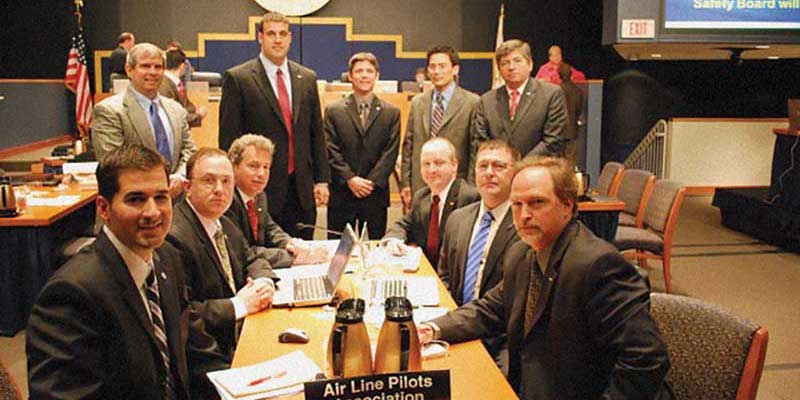For the aviation industry, February 12 serves as an annual reminder of why airline pilots are committed to lifelong training to keep flying safe. This day marks 10 years since the Colgan Air Flight 3407 tragedy, which became a watershed for aviation safety improvements. The Colgan accident was the last in a series of four high-profile fatal airline accidents over a six-year timeframe in the United States, and in the aftermath, significant positive changes in aviation safety emerged.
Through the collective efforts of ALPA, the Colgan families, and other aviation safety advocates, several significant safety advancements were enacted to ensure that the lessons learned from tragedy were never forgotten. Airline first officer training, experience, and qualification requirements; science-based regulations for passenger airline pilot rest and fatigue management; pilot mentoring; and aircraft upset prevention and recovery training were all implemented through the Aviation Safety and Federal Aviation Administration Extension Act of 2010. And since then, there have been no pilot qualification–related fatalities on U.S. passenger airlines. Not one.
The lessons learned from Colgan Air Flight 3407 came from a tragic loss of lives and must never be forgotten. As the world’s largest nongovernmental aviation safety organization, we remain unwavering in our opposition to any attempts to weaken these lifesaving improvements to aviation safety. We are trained for life.
